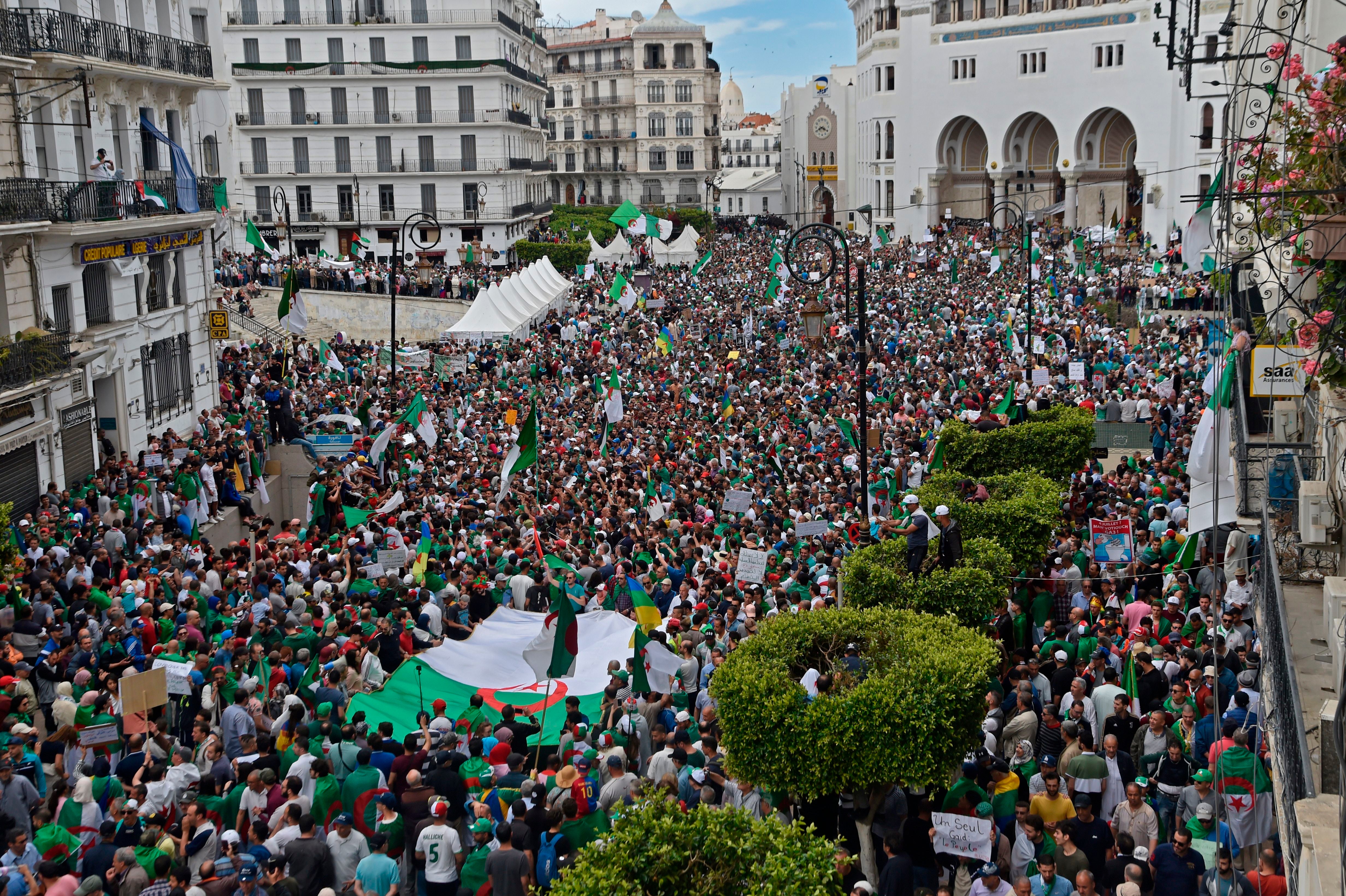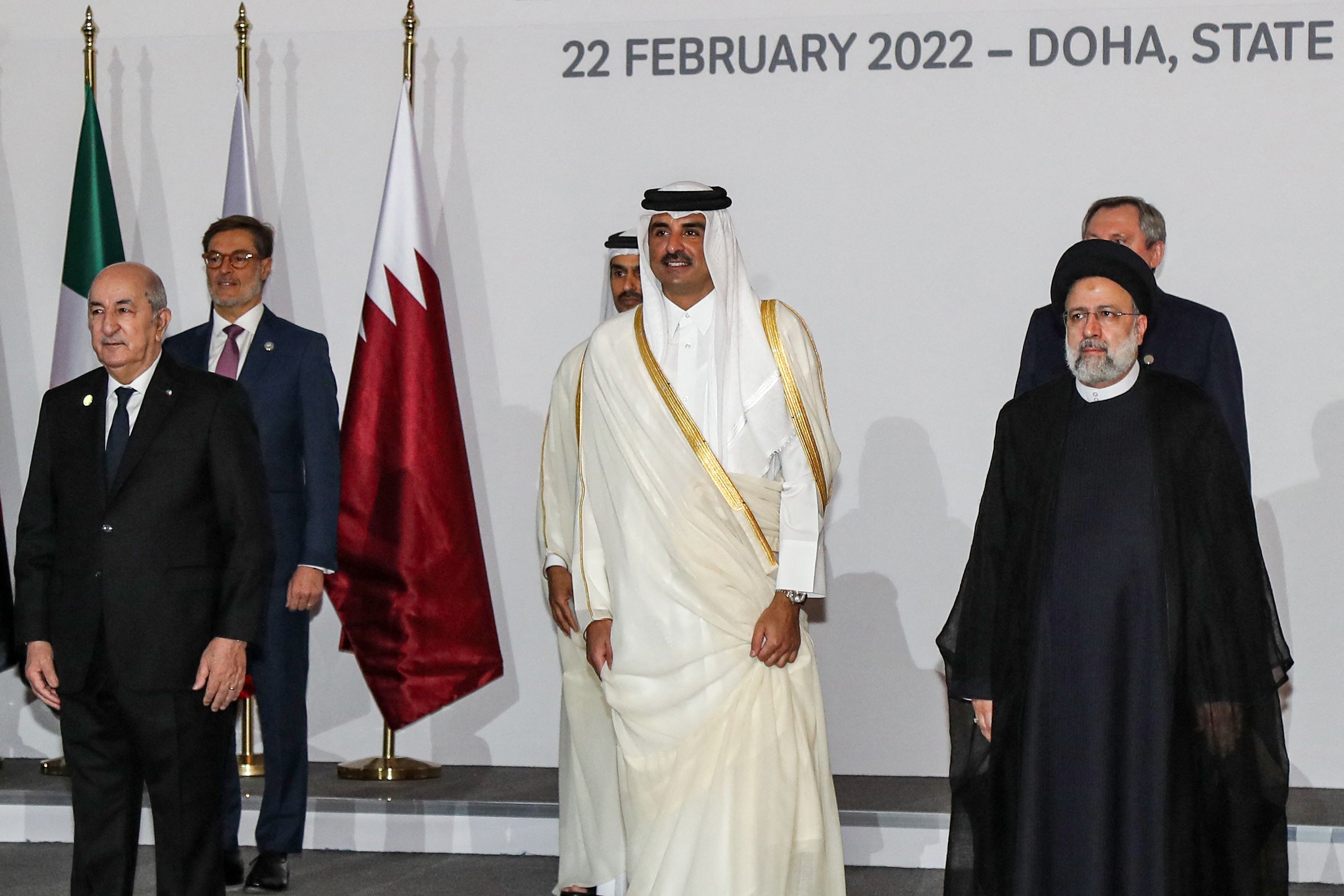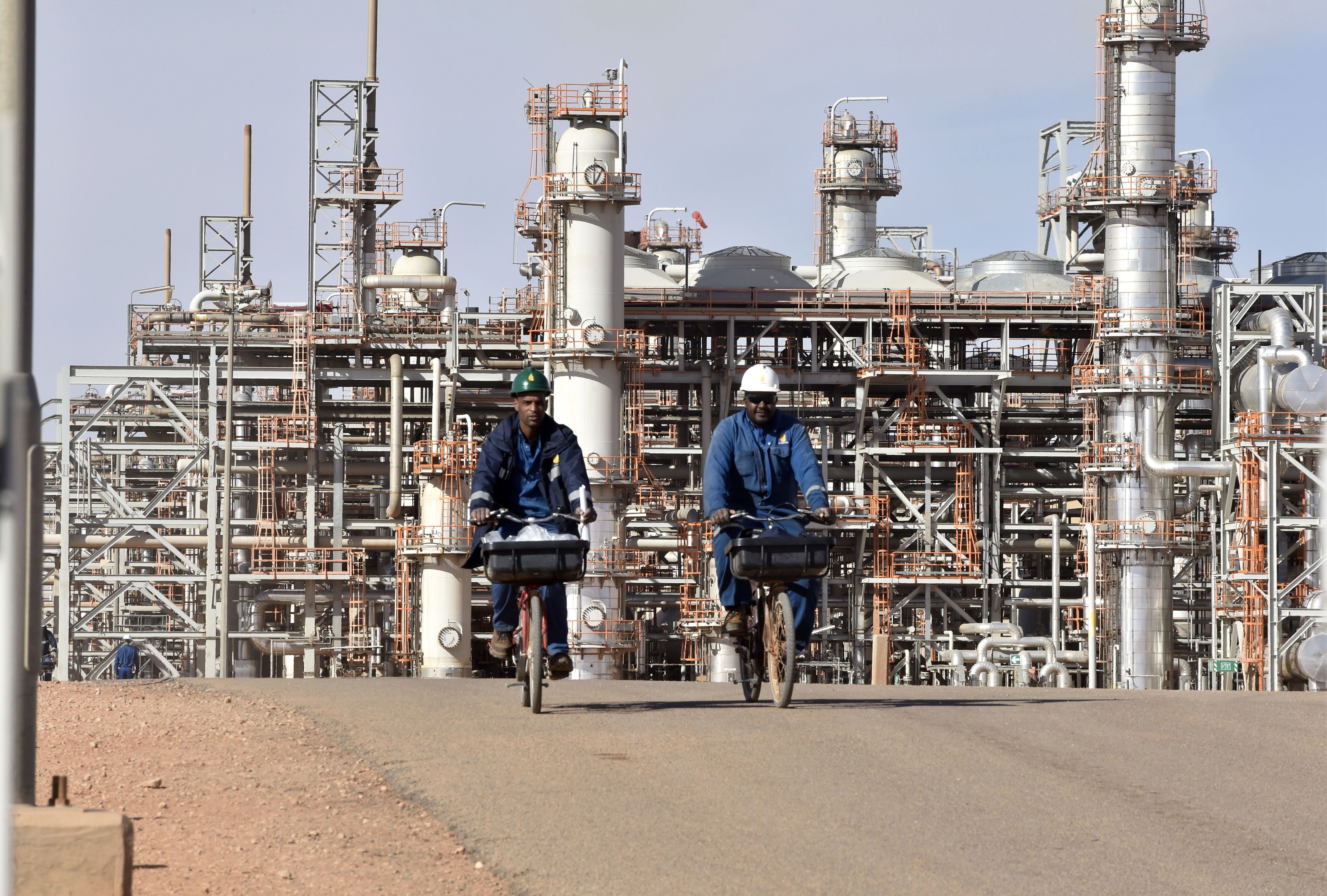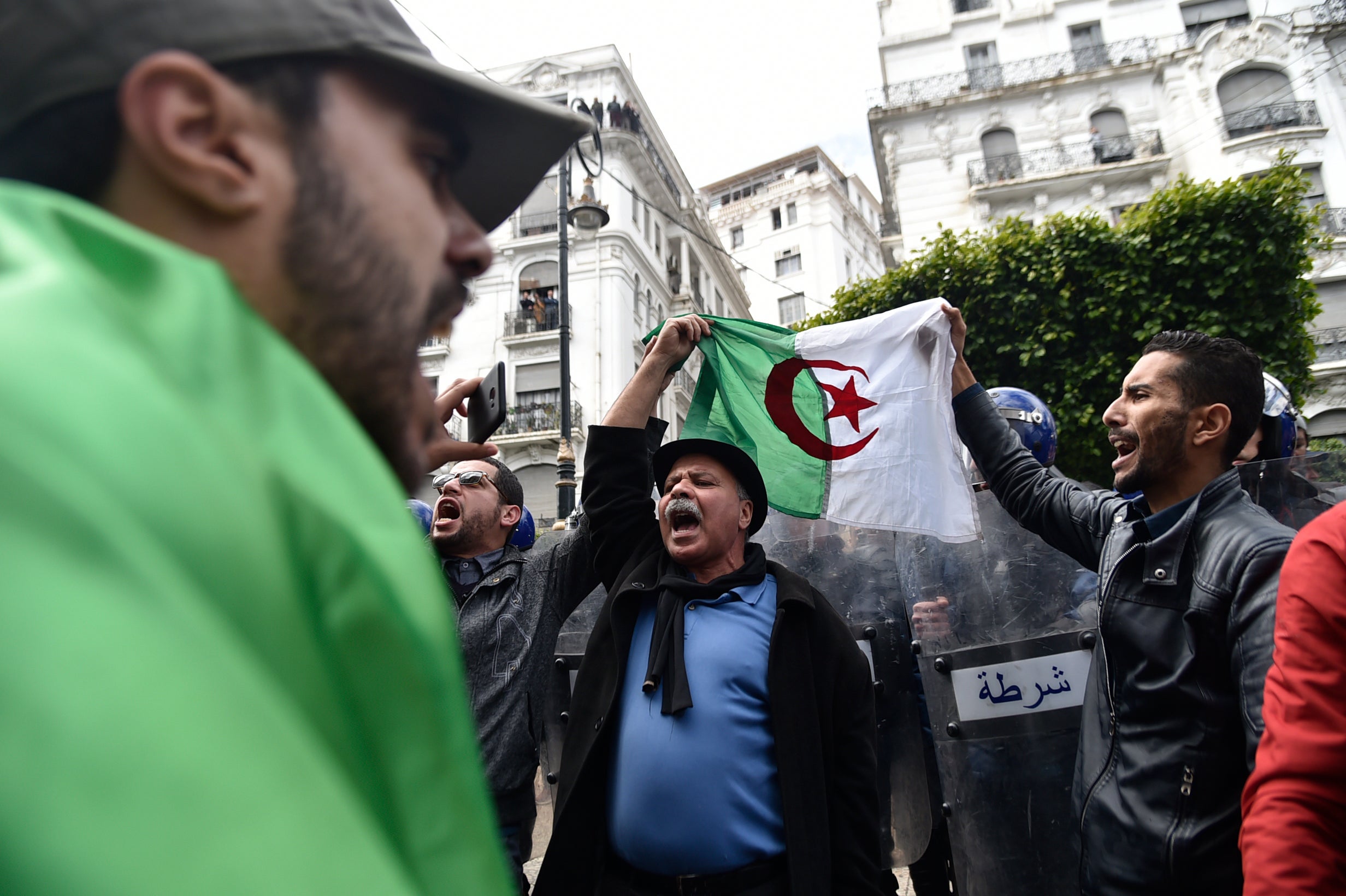
A promising Algerian pro-democracy movement that began three years ago today and was poised for a possible rebirth after the pandemic appears to be in deep trouble, partly due to the crisis more than 1,500 miles away in Ukraine.
With Russian gas exports potentially cut off as a result of geopolitical machinations over the Ukraine crisis and heating prices spiking across Europe, the opaque regime in Algiers appears to be in the driver’s seat against the Hirak protest movement.
Algeria boasts some of the largest energy reserves in the world, ranked 10th for gas and 16th for oil. Hydrocarbons have long been the economic backbone of the nation of 44 million people, the largest by landmass in Africa. Oil and gas make up nearly a third of GDP and 60 per cent of government revenues. It is the world’s sixth-largest exporter of gas.
Hirak, a network of civil society groups and activists, ousted the country’s longtime ruler Abdelaziz Bouteflika in 2019 and was pressing for further reforms. But its momentum had stalled due to increased repression and pandemic measures that brought an end to its weekly street protests.
“Hirak is not dead,” said Rachid al-Aouine, director of Shoaa, an Algerian human rights and advocacy organisation.
“But the overreaching and overextended military government is trying to find ways to suppress the movement,” he told The Independent.
The military-dominated government of President Abdelmadjid Tebboune has implemented laws that allow those taking foreign money for political activity to be charged with terrorism, a provision that has drawn criticism from the United Nations.
It has rounded up hundreds of political activists, opposition party figures and civil society leaders who formed the core of Hirak, a loose network pushing for change against the entrenched network of security service officers dominating Algeria since its independence from France 60 years ago
“It’s definitely very grim. and there’s a sense of hopelessness,” said Mr Aouine, who is based in London.
“There are a lot of arrests. The government has a wide-ranging arsenal of tools.”

The risk of a major war in eastern Europe has strengthened the Algerian regime’s hand. Russia has threatened to withhold natural gas supplies to western Europe, and the west has threatened to boycott or restrict purchases of Russian gas in case President Vladimir Putin opts to launch a major invasion of Ukraine.
The price of Brent crude hit a seven-year high of nearly $100 (£73) a barrel on Tuesday on the news that Mr Putin has ordered troops into eastern Ukraine after recognising the independence of two breakaway regions.
Germany later on Tuesday said it had halted the approval of the Nord Stream 2 pipeline from Russia in response to Moscow’s actions against Ukraine. The move is significant because the pipeline – which has not yet begun operation – is intended to double the amount of gas flowing between the two countries.
Europe and Russia’s long interdependence on one another for energy has become a critical bargaining chip on both sides. Russia dominates the EU’s gas market at about 38 per cent of total supply, posing a dilemma for European governments when it comes to talk of possible energy sanctions – and it remains to be seen whether other western nations will target Russian oil and gas.
The relative importance of Algeria starts to look higher with the crisis in Ukraine
Meanwhile, Algeria provides 8 per cent of Europe’s natural gas supplies, much of it to Spain and Italy, making it the third-largest provider to the continent. Energy prices have risen sharply amid a cold snap in the northern hemisphere and the tensions in eastern Europe.
A flurry of international officials have visited Algeria in recent weeks, including a senior Nato official in January. Mr Tebboune this month described a “breakthrough” in ties with France following a conversation with President Emmanuel Macron.
Unnamed US officials have reportedly told news agencies they had reached out to western companies that operate in Algeria about solidifying supply in case the Russian gas spigot is cut off.

Algeria is attending the Gas Exporting Countries Forum hosted by Qatar on Tuesday along with Iran, Russia, Egypt, Libya, Nigeria, Algeria, Bolivia, Equatorial Guinea, Trinidad and Tobago and Venezuela, as well as Angola, Azerbaijan, Iraq, Malaysia, Norway, Peru and the United Arab Emirates.
“The relative importance of Algeria starts to look higher with the crisis in Ukraine,” said Andrew Farrand, senior fellow at the Atlantic Council, and the author of The Algerian Dream, a book about Hirak.
“The regime’s calculations about its place within the world have changed a lot,” said Mr Farrand, who also lived in Algeria from 2013 to 2020.
“It means it could return to an earlier period where it could buy domestic peace and had partners in the international community. That allows it to make the decisions it wants to make with fewer compromises. But there is more at stake here than where Europe gets its gas and oil.”

Feeling flush with cash, the Algerian government has in recent days reversed a series of taxes it was set to impose, relaxing burdens on the middle class and business owners.
It has also announced a scheme to hand monthly stipends of £68 to unemployed men and women under 40 in a blunt attempt to curry favour with the youth who surged onto the streets of Algerian cities in 2019 and 2020.
But it also continues to step up relentless repression.
The regime got way more aggressive with arrests and intimidation
Human rights advocates have accused the government of targeting journalists, bloggers, and civil society groups as well as prominent opposition figures. Even ordinary citizens who post political material on social media have been targeted.
“We’ve seen changes to the penal code that introduce vague language to allow the government to declare anyone it wants to be an enemy of the state and lock them up for vague crimes,” said Mr Farrand.
Human Rights Watch (HRW) said authorities are detaining at least 280 activists.
On 24 January Abdelkrim Zeghilèche, director of the Constantine-based radio station Sarbacane, was arrested on accusations of “apology for terrorism,” “using information technologies to spread terrorist ideas,” and “disseminating information that could harm the national interest,” for Facebook posts and media citations, his brother told the rights group.
“Piling on dubious charges of ‘terrorism’ and vague charges like ‘harming national unity’ cannot hide the fact that this is about crushing the critical voices of a peaceful reform movement,” Richard Goldstein of HRW said in a statement.
At least 48 civil society leaders have remained in pretrial for 10 months, with many of them launching a hunger strike late last month. Mr Aouine said they were subject to “physical abuse and mental abuse” including beatings and solitary confinement.
"The regime got way more aggressive with arrests and intimidation,” he said.

Mr Farrand warned that the regime’s calculations could backfire.
Decades of poor economic planning have made Algeria dependent on imports, especially of food and food staples. While a war in eastern Europe may bring in more gas revenue, it could also make it more vulnerable to any spike in global food or commodity prices.
But for now, the regime is throwing caution to the wind by deploying secret police and jails to thwart a peaceful protest movement.
“They felt a lot of scrutiny during the early months of Hirak,” Mr Farrand added.
“There was a recognition that the world was watching and they were very careful as a result. You’re seeing less attention on Algeria today, and the fact that they may be more needed on world energy markets means they’ll get even less scrutiny and potential pushback on domestic measures in the future.”







